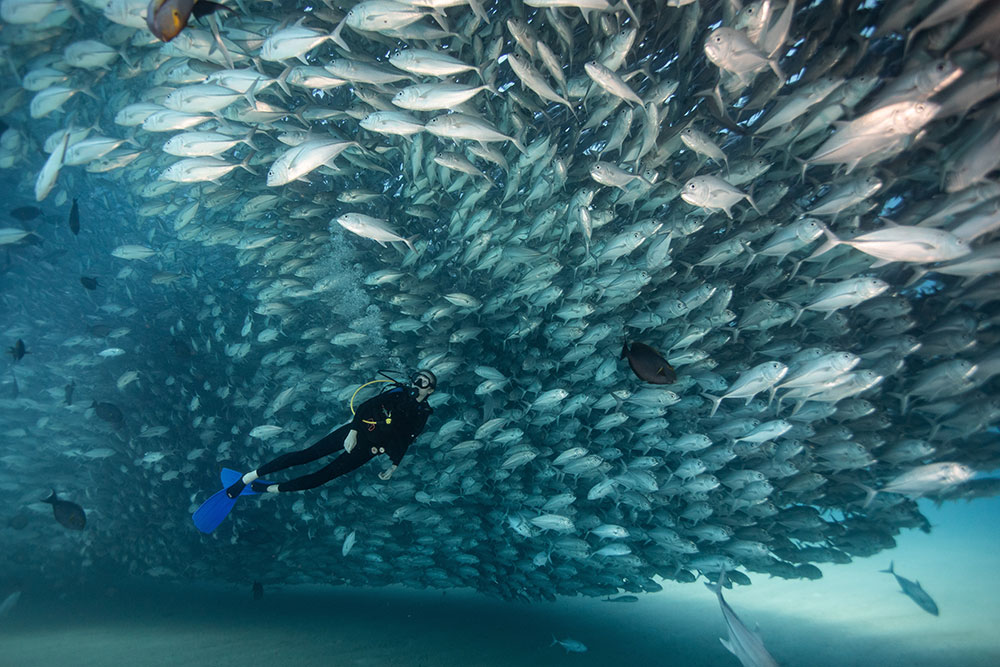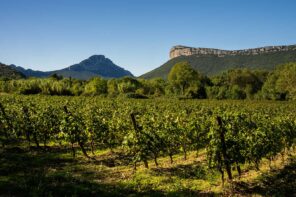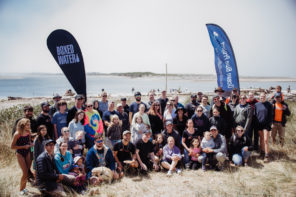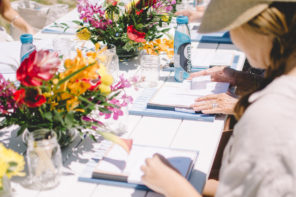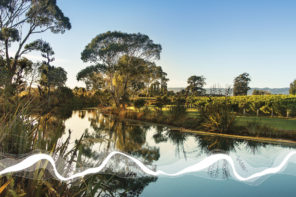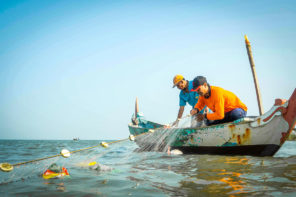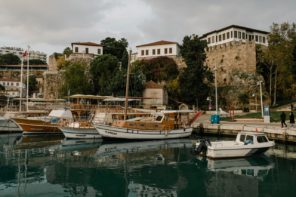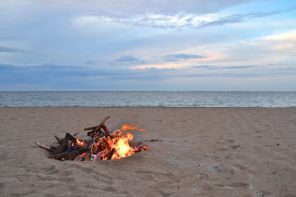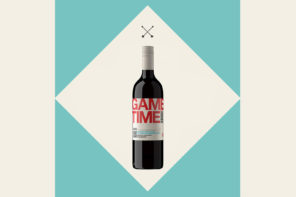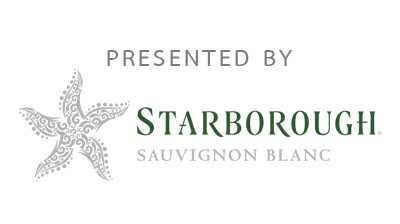
One woman’s and one wine’s efforts for the ocean
As most of you know at this point, we are big fans of the big blue. As a result, we are even bigger fans of the folks who work hard to make a difference down below, on the surface or for any of the creatures living there. People like Alexandra Cousteau. Explorer, ocean advocate and Senior Adviser to Oceana—the world’s largest international ocean advocacy organization—Alexandra devotes her time to honoring her family’s mission to protect the planet while we still can. And what better way to dive into conversation about ocean conservation and exploration than over a glass of wine. But not just any wine. Starborough Wine, a sustainable New Zealand-native wine who also does some good for the ocean by donating a dollar to Oceana for every bottle sold.* Passionate for the planet and pretty damn tasty. Drink wine, help save the ocean. Pretty nice trade off. Cue back roll.
It’s time to shift this story of ocean loss into a tale of restoration.”
Whalebone: If you could say one thing and have the entire world hear you, what would it be?
Alexandra Cousteau: Our oceans are a source of wonder and joy, of life and livelihoods. We need our oceans, and, right now, our oceans need us. Healthy oceans can help address many of the world’s most daunting challenges—from climate change to world hunger and malnutrition to loss of biodiversity. But only if we take the necessary actions to allow them. It’s on us to demand the systemic change and policies needed to restore our oceans and safeguard our future.
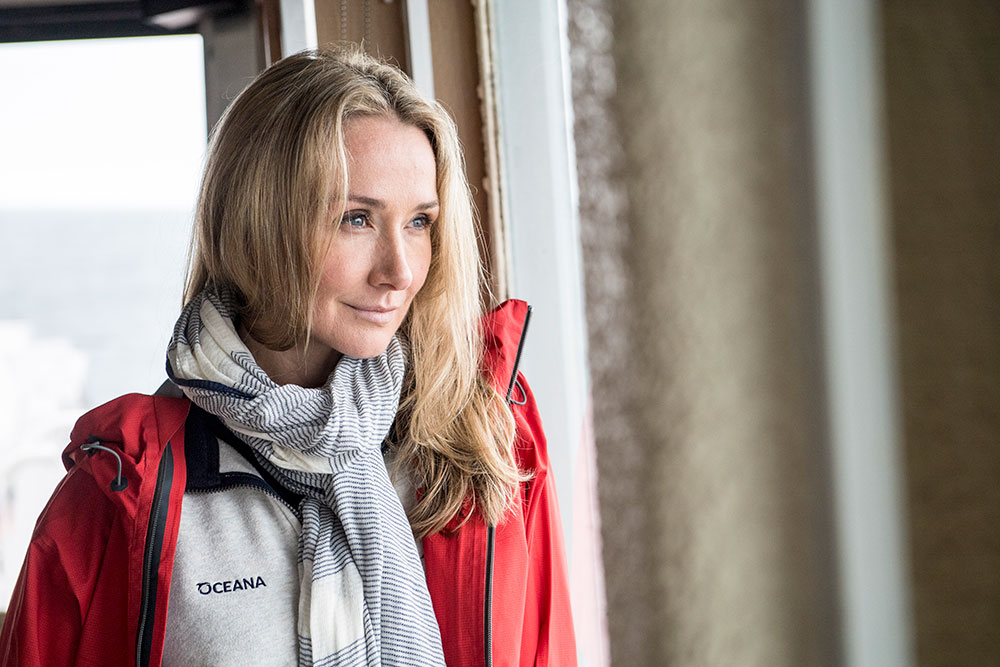
WB: What is the most memorable experience you have from your life as an explorer and conservationist and of all your efforts, explorations and adventures, what is the most rewarding aspect of what you do??
AC: Every expedition and every dive is so memorable in its own way. Recently, I’ve been so encouraged by my time campaigning for oceans in Canada with Oceana. I joined the team there for a number of scientific expeditions to document and collect data from some truly incredible ocean habitats in need of protection—and we’ve even already won protection for some of those spots!
On our expedition off the central coast of British Columbia, we worked hand-in-hand with the Heiltsuk and Kitasoo/Xai’Xais Nations. For millennia these communities have been stewards of the marine resources that are crucial to their culture and well-being. Our research and understanding of the underwater habitats we documented were enhanced and complemented by these peoples’ wealth of traditional knowledge.
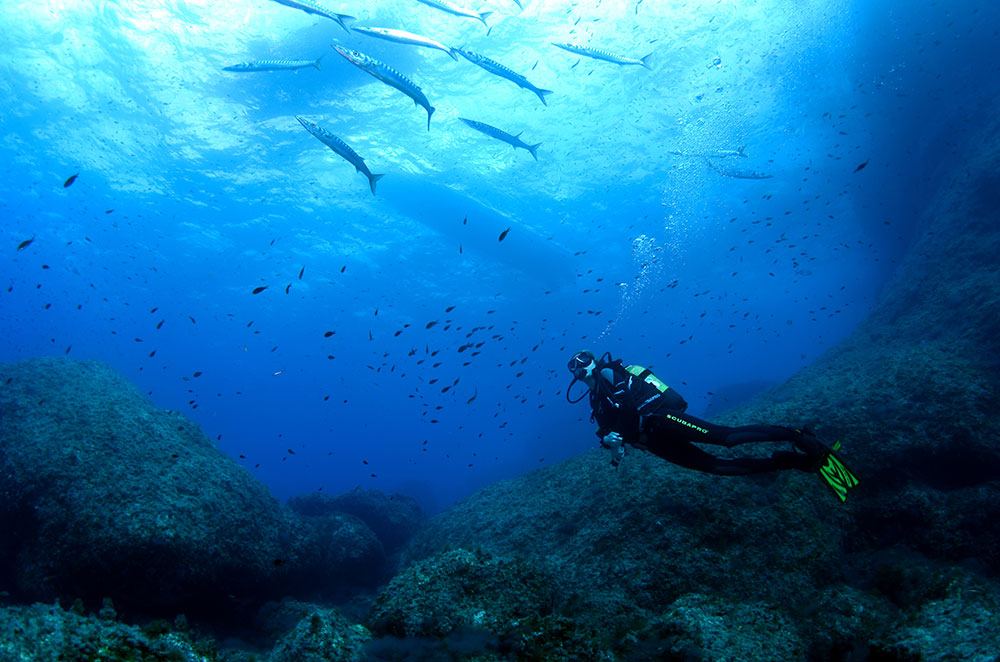
WB: Tell us about a time in the water that changed you as a person.
AC: Belize is a country that’s very dear to me and woven into the Cousteau legacy. My grandfather made Belize’s Blue Hole famous in 1971 when he declared it to be one of the world’s best diving sites. The first time I had the opportunity to dive Belize’s Mesoamerican reef, the second largest barrier reef in the world, it felt surreal. Colorful fish swam around me, corals teemed with life, and the sun’s rays cut straight through the water to the seafloor. At some point, I just had to stop and take it all in. I was overwhelmed. Later, the government was going to allow oil companies to drill on this vibrant reef, but because of Oceana, our allies and the Belizean people, the reef is protected against not just offshore drilling, but also destructive bottom trawling and gillnets.
WB: One of the biggest misunderstandings people have about the health of the ocean and conservation.
AC: That we’ve damaged them too far beyond repair, that it’s too late to turn things around.
By working together, we can restore the health and abundance of the world’s oceans, and organizations like Oceana are doing so by winning science-based policies. It’s time to shift this story of ocean loss into a tale of restoration. Instead of simply working to conserve and sustain those habitats and marine life that remain, we need to seek a return to the vibrant oceans from years ago.
Right now, we need an ambitious vision for how we will save the oceans while there is still time.”
WB: What are some of the policies that Oceana has aided to get put in place in order to protect the ocean’s biodiversity? Where are the locations where overfishing is the worst?
AC: In its 20 years, Oceana has already won more than 225 policy victories and protected nearly 4 million square miles of ocean. By running focused, time-limited, and measurable campaigns, Oceana is making the seas—which cover two-thirds of our planet—more abundant and biodiverse.
According to a 2018 UN report, the Mediterranean Sea is the most overfished in the world.
Stopping overfishing has always been a central strategy of Oceana’s campaigns. This mission matters because oceans full of fish can support both vibrant marine ecosystems and fisheries that will feed more than a billion people in a sustainable way. Oceana is campaigning for science-based fishery management laws that stop overfishing and legally mandate rebuilding in countries that control nearly one-third of the world’s wild fish catch. And we’re making progress. Thanks to campaigning by Oceana and allies, Canada passed a new Fisheries Act just a couple of years ago that requires, for the first time in that country’s history, science-based rebuilding of all depleted fish populations.
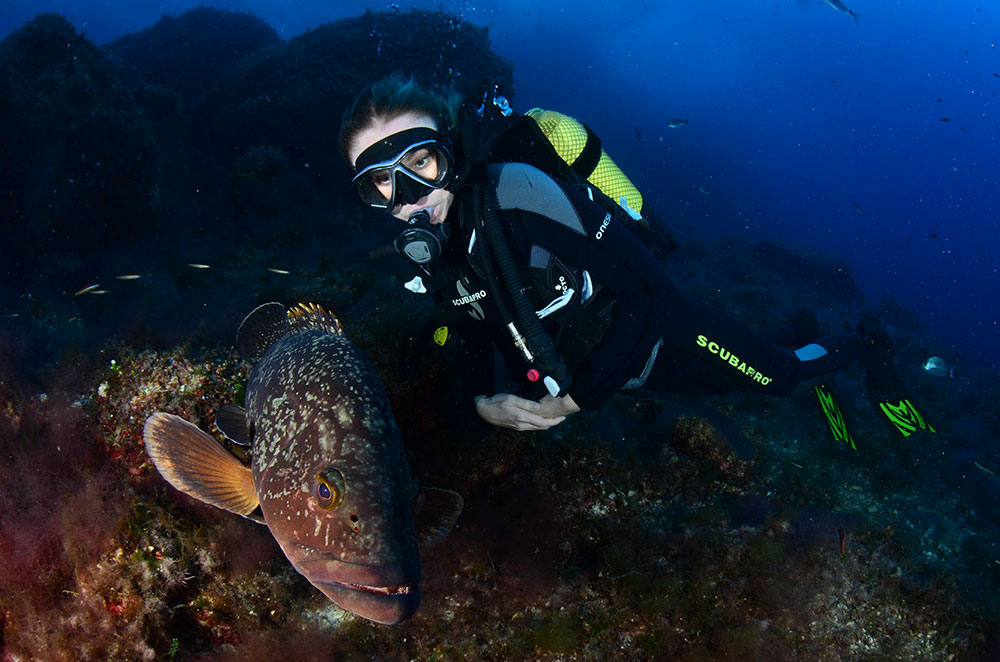
WB: In your opinion, what’s the best seafood to pair with Sauvignon Blanc?
AC: Oysters with a classic mignonette sauce. I love a good oyster, and oysters and other bivalves can be an ocean-friendly seafood choice.
WB: Have you witnessed changes in biodiversity and population levels of species in the oceans and on land in your lifetime of exploration?
AC: Sadly, yes. There are a few treasured spots that I’ve revisited over the years. Where there once were more species of fish than I could attempt to count, only a handful remain. Fifty percent of the whales, fish and other life that existed there in the ‘50s when my grandfather, Jacques-Yves Cousteau, first started exploring the amazing world beneath the waves is gone now. It’s clear that we, as a society, have some urgent soul searching to do about how we manage our oceans and how we plan to address these problems moving forward.
It’s clear that we, as a society, have some urgent soul searching to do about how we manage our oceans and how we plan to address these problems moving forward.”
WB: What was the main reason you decided to get involved with Oceana?
AC: My first intentional act of advocacy for oceans started when I was 8 years old. I went around to whoever would listen and gathered signatures for my grandfather’s petition to protect Antarctica. I have been involved in ocean conservation ever since. Continuing and building upon the legacy of my grandfather and family has always been important to me, and I’ve always looked for opportunities to make a meaningful difference.
Right now, we need an ambitious vision for how we will save the oceans while there is still time. Oceana has that vision and that’s why I support their campaigns. That’s one of the things that is so unique about Oceana: They aren’t simply working to maintain the status quo, they are actually restoring the health, biodiversity, and abundance of our oceans. Oceana is building a better future for us all—that’s what first attracted me to them and why I continue to support their campaigns.
WB: If there is one thing every person on the planet could do to ensure the health of the oceans, what would it be?
AC: Join a proven, science-based organization like Oceana, and use your voice as part of a dedicated group pushing for policy outcomes. Each of us can make individual choices that help our oceans (like giving up single-use plastic bottles) but our true power comes from working together and winning policies and systemic changes that restore our oceans. Use your voice alongside a movement of dedicated ocean activists to win lasting change.
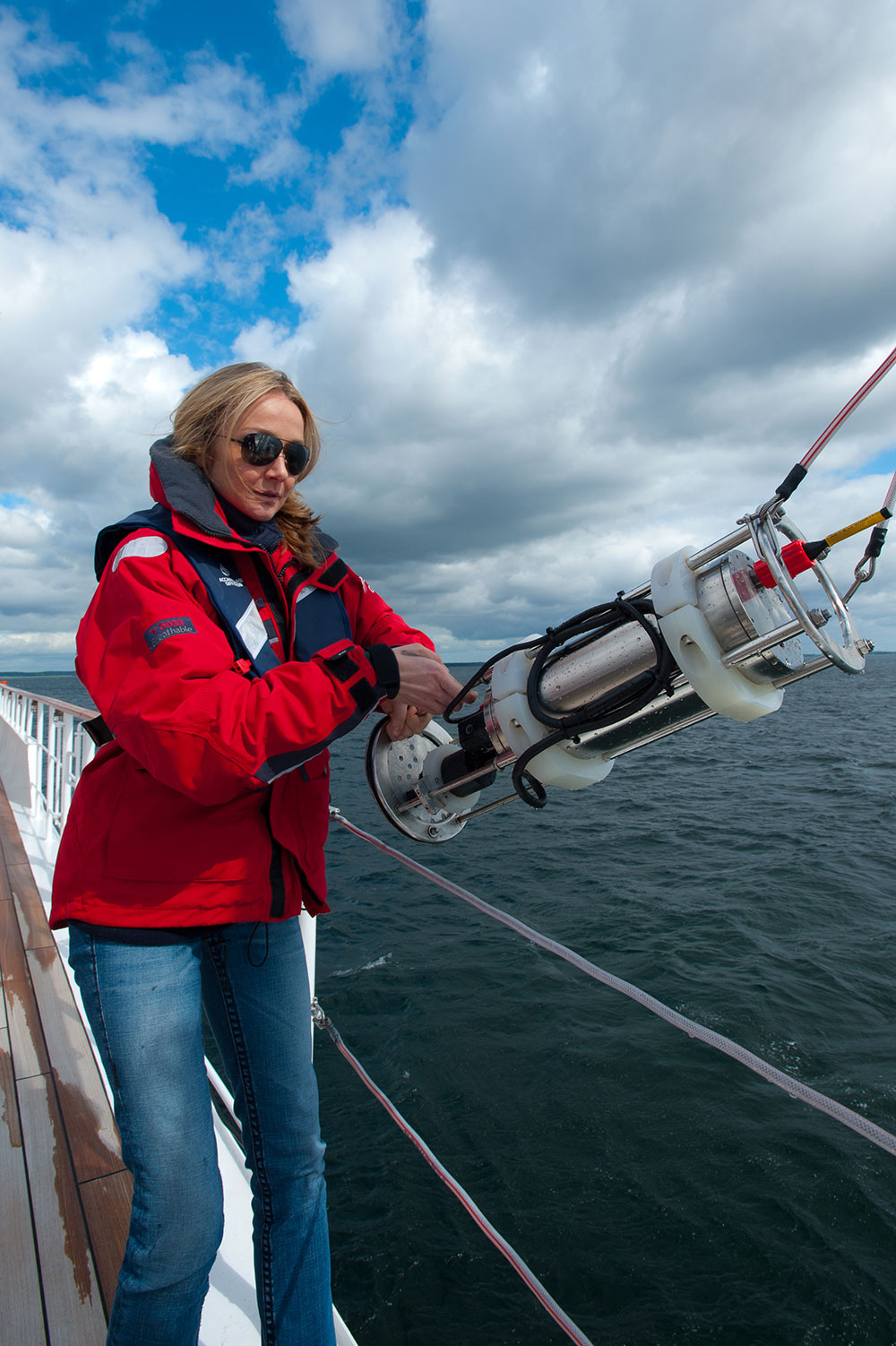
WB: Have you seen any glimpses of hope that assure you the efforts of Oceana and other like-minded organizations are gaining traction? Why is donating to Oceana something that will actually help to make a difference?
AC: I’ve seen more than glimpses. I’ve seen definitive proof that Oceana and its allies are making real progress toward protecting and restoring our oceans. Not only elevating awareness about the threats to our oceans, but Oceana is also winning victories that address those threats head-on.
Just look at the California-based drift gillnet fishery targeting swordfish. For years, this fishery killed more dolphins than all other West Coast and Alaskan fisheries combined. These deadly, indiscriminate nets earned the nickname “walls of death” for good reason. Oceana’s campaigners took action and won emergency protections for dolphins, whales, and other at-risk marine life, then helped to pass state legislation in California that is finally getting these nets out of the water. This legislation is helping former gillnetters transition to safer fishing methods and livelihoods.
WB: Walk us through how you prepare for a dive—what are you searching for, what are you currently studying, etc.
AC: I certainly dive just for fun, for the thrill of it, and I love to explore new underwater reefs and wrecks. However, when I dive as someone who is trying to protect and restore the world’s oceans, the process becomes much more strategic. When I join Oceana on an expedition, our journey is planned to the minute. We have specific goals and objectives to collect the data and evidence about a particular habitat needed for campaign teams to then win meaningful protections for those areas. We’re there with a purpose, and no dive is more fulfilling than that.
WB: After a long day of diving and detangling sea creatures from nets and swimming with sharks, what’s your wine preference to relax?
AC: I appreciate a nice full Bordeaux by the fire to warm up after a long dive. But when in the tropics, a thoroughly chilled Sauvignon Blanc is divine.
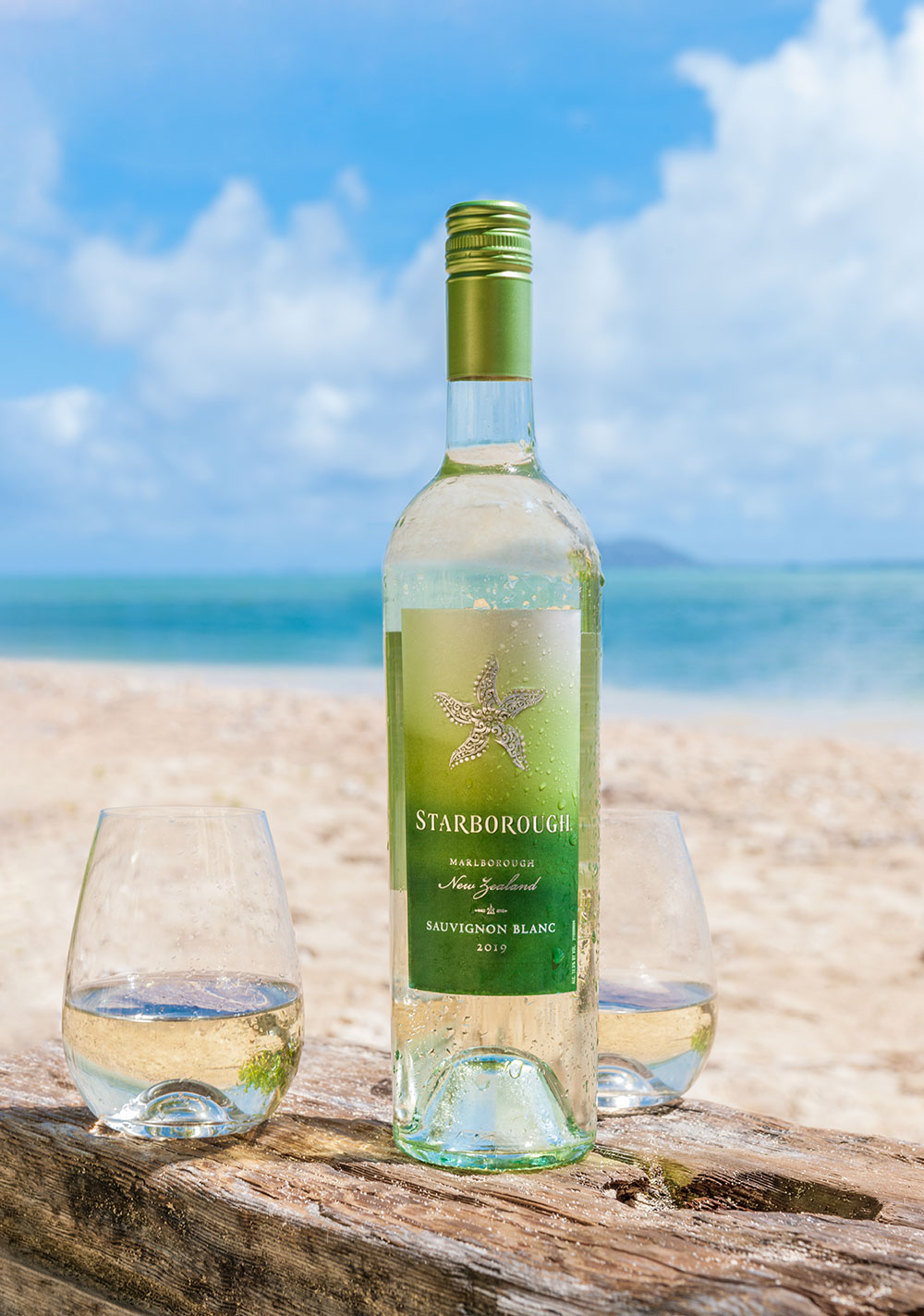
Everyone can make a positive impact on the health of the ocean. Getting involved, joining an organization like Oceana, or even just having a glass of Starborough Sauvignon Blanc. All of the above seems like a pretty good idea. Just keep swimming.
*Starborough will donate up to $50,000 from May 1, 2021 through August 31, 2021, excluding CA

